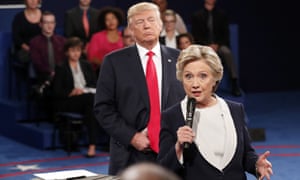
During the time spent reporting the US Justice Department's July 2018 prosecution of twelve Russian military knowledge officers for hacking Democrats' PCs and distributing the substance, US representative lawyer general Rod J Rosenstein noticed that: "What affect they may have had [on the 2016 presidential election] … involves hypothesis." I oppose this idea. While the case will never be press clad, one can conceivably decide how these Kremlin-tied saboteurs changed the challenge that put land designer Donald J Trump in the White House.
Doing as such involves two stages. The primary requires recording the manners by which the Russian digital burglary of in excess of 150,000 messages and reports influenced key players, reinforced or undercut the discretionary techniques of the significant party contenders, legitimized focal Republican assaults, and adjusted the media and discussion motivation. The second includes asking how these adjustments to be decided of informing and the media motivation contrast with those whose impacts have been reported in past battles.
My beginning reason is that the tranche by tranche posting – first through Guccifer 2 and DCLeaks and after that by WikiLeaks – of substance hacked by Russian agents changed columnists and media outlets, in the expressions of the Pulitzer prize-winning detailing group at the New York Times, into "a true instrument of Russian insight". Looking for scoops and assumed outrages in the firehose of Russian hacked content, correspondents made light of Russia– related data that distraught the Republicans, injected the media plan with hostile to Clinton "news", and decontextualized hacked content in courses dangerous for the Democrats.
In the meantime, the Clinton battle, as indicated by an Associated Press examination, "was significantly destabilized by the sudden exposures that consistently transmitted from each hacked inbox". Among these interruptions was the renunciation of Democratic National Committee seat Debbie Wasserman Schultz despite hacked proof of a predisposition by some DNC staff members against Clinton's adversary amid the primaries, Senator Bernie Sanders. Moreover, after a stolen email proposed that she had shared a foreseen line of Town Hall addressing with the Clinton battle in the primaries, CNN let go the gathering's most obvious Democratic lady of shading, long-lasting CNN observer Donna Brazile.
The July 2018 arraignments by extraordinary advice Robert Mueller affirmed that WikiLeaks coordinated the arrival of hacked content from the Democratic National Committee to defeat Clinton's endeavors to unite the help of Sanders' voters. "The amount BAD JUDGMENT was in plain view by the general population in DNC in composing those extremely imbecilic messages, utilizing even religion against Bernie!" tweeted Trump on 25 July. He was alluding to an email titled "No crap" that considered the possibility of exposing Sanders as an agnostic. "My Southern Baptist peeps would draw a major distinction between a Jew and an agnostic", it read to a limited extent. As indicated by web researchers Yochai Benkler, Robert Faris and Hal Roberts, that purloined piece was the "most broadly shared email from the DNC dump … inclusion that was very noticeable when estimated by media inlinks".
In like manner Russian-hacked content worked to support Trump with white Evangelical Protestants and preservationist Catholics, the last a key casting a ballot obstruct in Philadelphia, Detroit, and Milwaukee – extensive urban areas inside the three firmly chose states that gave the fluctuating head honcho the votes that spelled an appointive school triumph. In a hacked email trade discharged by WikiLeaks, Clinton correspondences executive Jennifer Palmieri, who is herself Catholic, appeared to be pompous of both outreaching Christians and moderate Catholic Republicans. "Messages uncover top Clinton helper ridiculed evangelicals and Catholics" read a feature in the outreaching production Christianity Today. A half million part moderate gathering called CatholicVote requested Palmieri's abdication.
In a comparable vein, hacked content helped Trump legitimize three key allegations: the general decision was being fixed by the Democrats, the predominant press couldn't be confided in on the grounds that it was allied with Clinton, and the previous first woman's own battle group scrutinized her qualification for office.
On the primary front, by utilizing content discharged by WikiLeaks to charge that Clinton had not won the primaries "reasonable and square," the Republican candidate fought that the main way he wouldn't win "by monstrous avalanches" would be if the race was fixed. In addition, he and his partners utilized the disclosure about Brazile to underscore their case that the prevailing press were in the tank for Clinton. In like manner, in their last discussion, Trump reacted to a Clinton assault on his capabilities by refering to WikiLeaks to state that her battle director "John Podesta said some unpleasant things in regards to you and kid was he right".
At the point when the Access Hollywood tape debilitated to sink the Trump nomination, the media's utilization of hacked content floated it. On 7 October 2016, two days before the second presidential discussion, the indecent affirmations memorialized on that hot mic recording provoked intellectuals to ponder whether Trump was admitting to rape. As very set Republicans considered whether to move bad habit presidential chosen one Mike Pence to the highest point of the ticket, a disclosure found in Bob Woodward's Fear, Russian hacking scattered on WikiLeaks spared the day for Trump by diverting the media motivation. Uprooted in the process was the declaration before that day by the Office of the Director of National Intelligence and the Department of Homeland Security that the Russians were behind the hacking of the Democratic records.
By posting portions of addresses Hillary Clinton conveyed in secret, WikiLeaks and Julian Assange moved the media center from Trump's proclivities and the reasons the Russians may be cheerful to see him win, to an examination of the vulnerabilities of both significant gathering chosen people. Appropriately, Trump champion and previous New York leader Rudy Giuliani contended on persuasive Sunday talk with shows on 9 October that Trump's gloating about his big name privilege and Clinton's hacked shut entryway comments each uncovered imperfect competitors.
0 comments:
Post a Comment